DAMASCUS, July 29 (Xinhua) -- On 53-year-old Syrian businesswoman Roula Ali-Adeeb's desk is a blue memorial plate written with silver English words and Chinese characters: "The First China International Import Expo, Participating Enterprise."
Showing the pictures on her computer taken in Shanghai during the first China International Import Expo (CIIE) last year, Ali-Adeeb told Xinhua that she looks forward to participating in the second CIIE in the coming months.
Ali-Adeeb founded a bio-oil company BioCham in Damascus in 2000, which can process and extract roses, lavender and other natural plants to produce cold-pressed oil and essential oils.
The rose water and essential oil made from Damask roses are her company's primary products. With a heady, rich and smooth scent, the Damask Rose is an important material for cosmetics and perfumes popular in the Arab world and Europe.
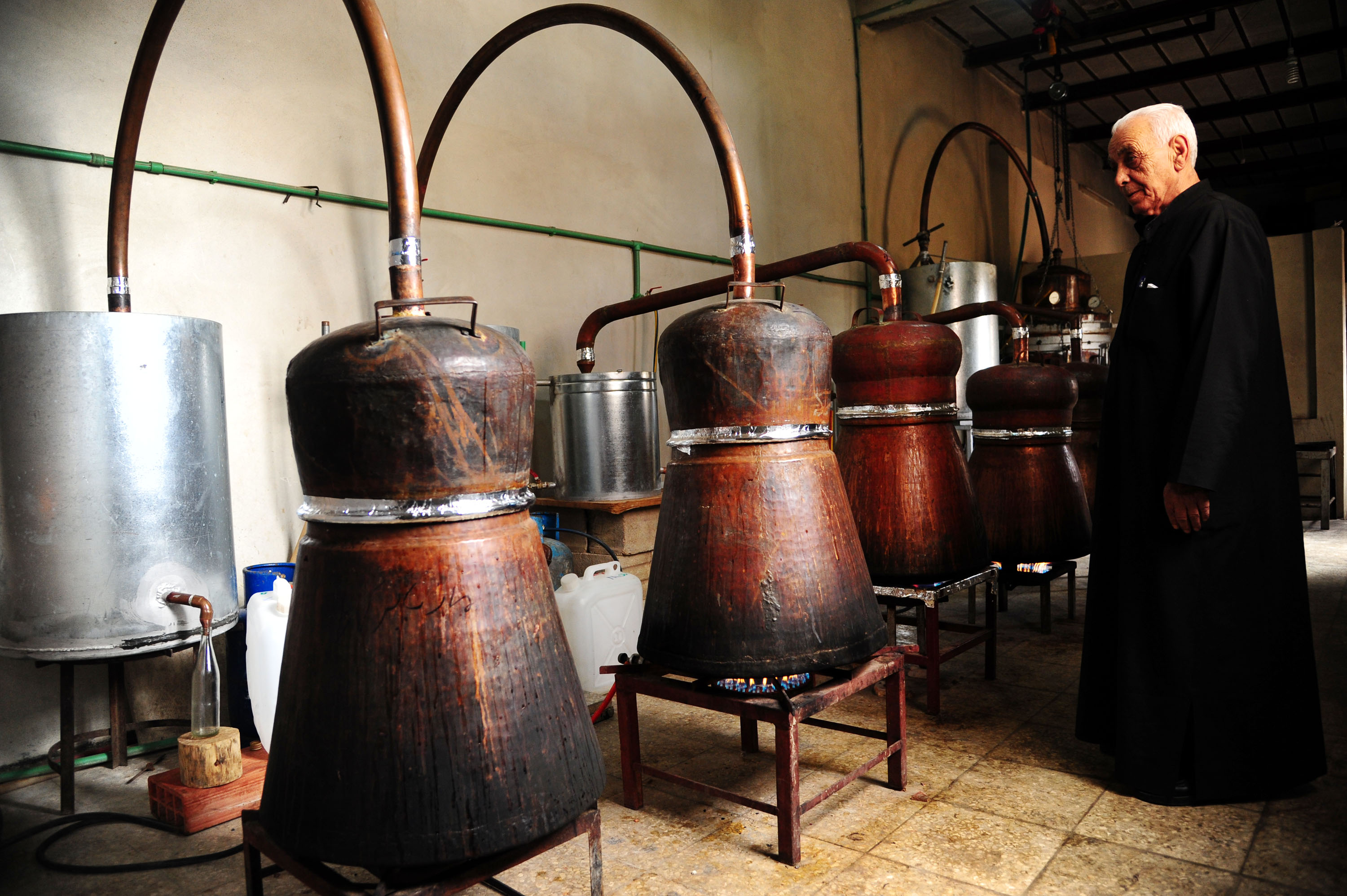
A Syrian farmer boils rose water during the distillation process of the famous Damask, or Damascene Rose in the town of al-Marah, north of the capital Damascus, Syria, on May 13, 2018. (Xinhua/Ammar Safarjalani)
The essential oil extracted from the rose is especially precious and called "liquid gold." However, local rose planters witnessed the withering of the flower in the past several years since the start of a protracted civil war in 2011.
According to farmers engaged in traditional rose processing, the local rose fields located in the al-Nabek area have been reduced by half. Many growers fled homes to escape the fighting, leaving their rose fields unattended.
"Our factory was located in a dangerous area during the war. The government army was stationed outside, and the anti-government troops were also in nearby areas. Our production activities were interrupted, and then resumed. This went on repeatedly," said Ali-Adeeb.
The company was on the verge of life and death several times: a batch of 200,000 euros (223,000 U.S. dollars) worth of goods could not be paid due to economic sanctions; a production manager with over 10 years' working experience joined the opposition and left; and militants once broke into the factory to abduct the employees.
"The workers had kept picking (the flower) under gunfire," she said.
"For me, the Damask Rose is Syria." Ali-Adeeb said, adding that she decided to stay as long as her workers stayed.
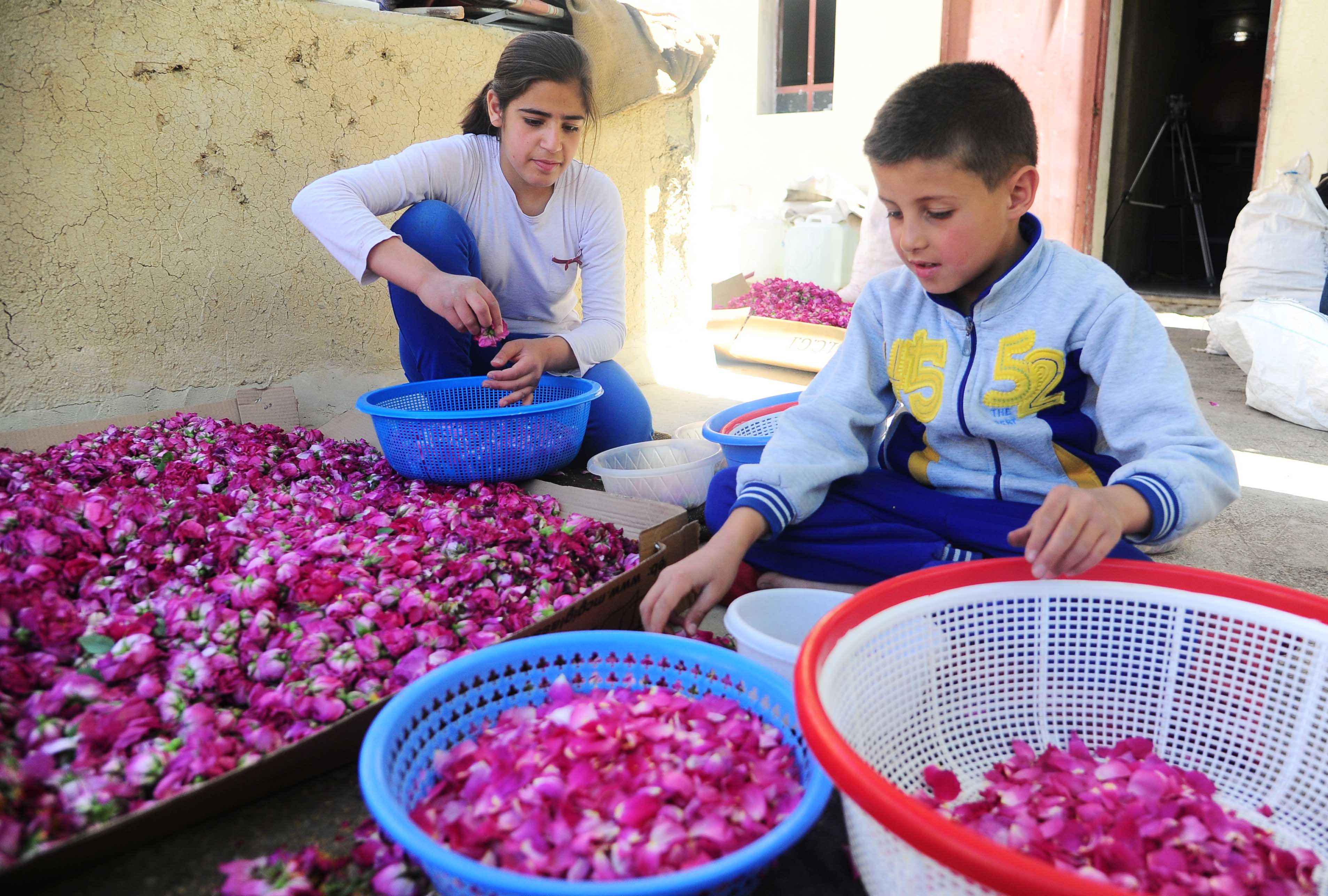
Syrian children take part in the picking process of the famous Damask, or Damascene Rose, in town of al-Marah, north of the capital Damascus, on May 29, 2017 (Xinhua/Ammar Safarjalani)
As Ali-Adeeb and her employees were in dismay about the company's business prospect, orders from China surprised her and became her largest source of revenue in 2017.
Though the war around Damascus eased, the domestic tourist market remains stagnant.
"We hope to gain access to foreign markets, such as China, Russia and other friendly countries," she said. "In order to open up the Chinese market and bring new hope to the company, I decided to participate in the first CIIE."
Recalling her first CIIE trip in 2018, she said Chinese consumers showed great interest in her products.
"When there was an opportunity to participate in the International Horticultural Exhibition in Beijing, I grabbed it immediately," she added, referring to a top-level global event on horticulture hosted by Beijing this year.
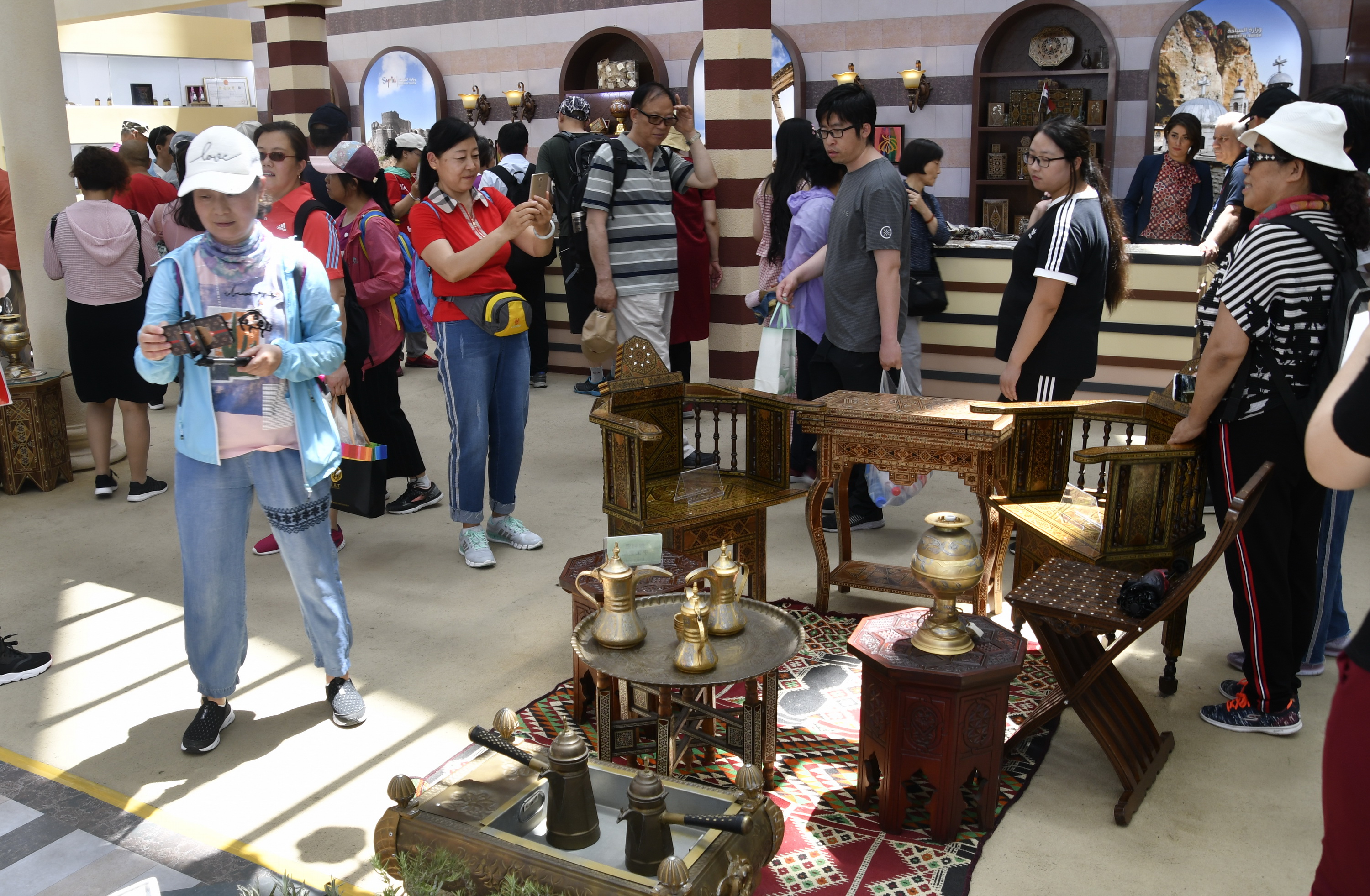
People visit the Syria Garden on the Syria Day of Beijing International Horticultural Exhibition in Beijing, capital of China, May 29, 2019. (Xinhua/Li Xin)
According to Julie Dong, who officially manages the Syria pavilion in the ongoing Beijing Expo, the rose water and essential oil from BioCham displayed on site has been popular, with average sales reaching 30-40 bottles a day.
"We want to get orders, even if just 1 percent of the reported 16 million visitors show interest in our products," Ali-Adeeb said of her expectations for the months-long expo in Beijing.
Pointing at a row of bullet shells standing on a desk in her office, she said, "I took back these bullet shells from the rose fields every time I walked in the plantation. This reminds us that we, our company, and the whole country experienced a difficult time."
Ali-Adeeb sees light at the end of the tunnel because of China. "With the second CIIE coming up," she said, "we look forward to participating."
















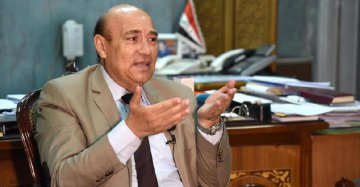

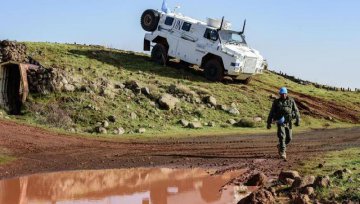



Latest comments